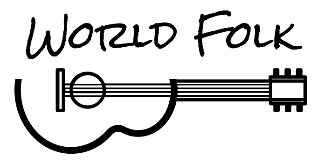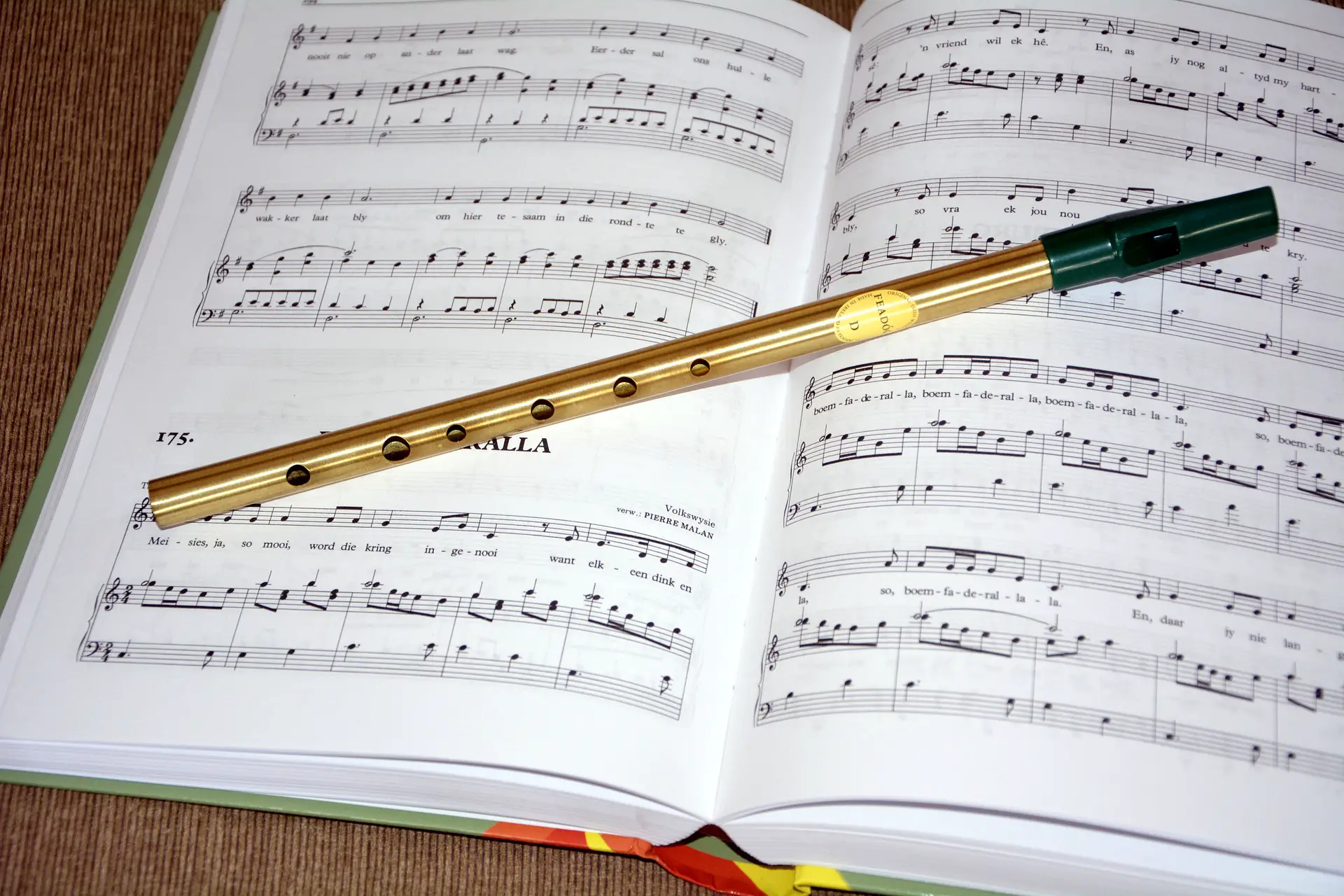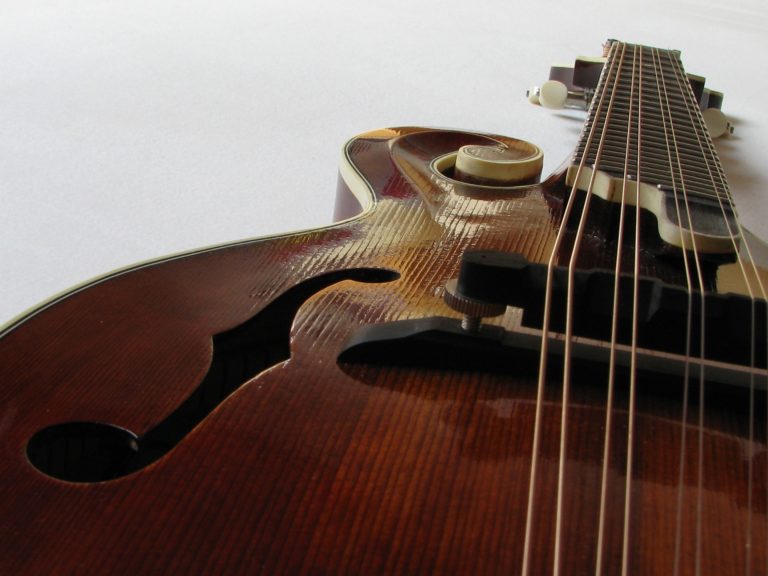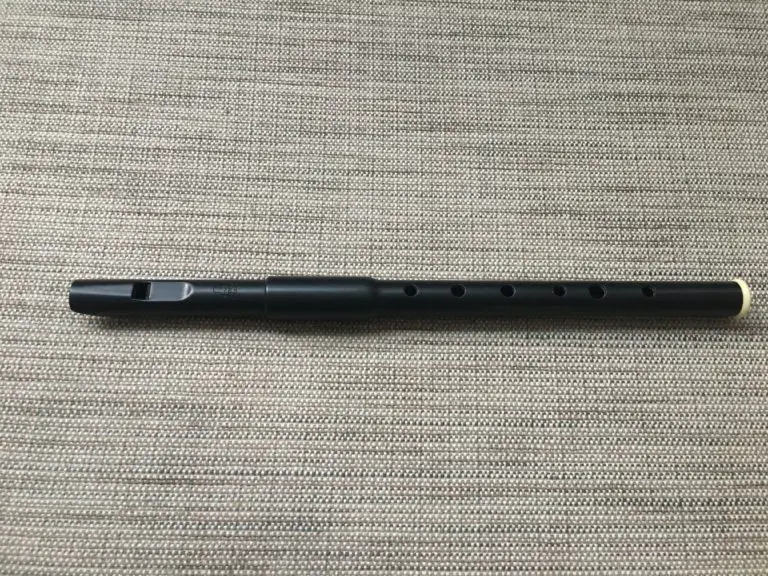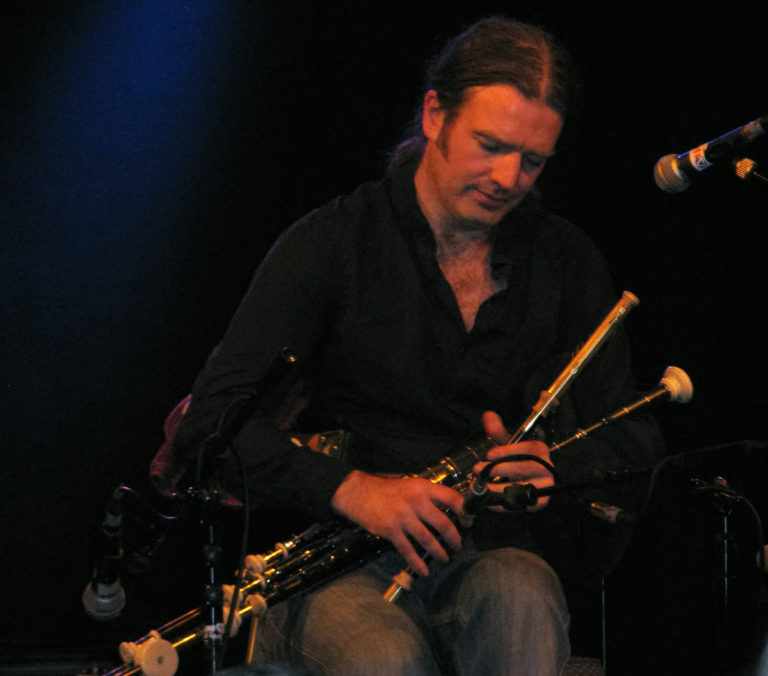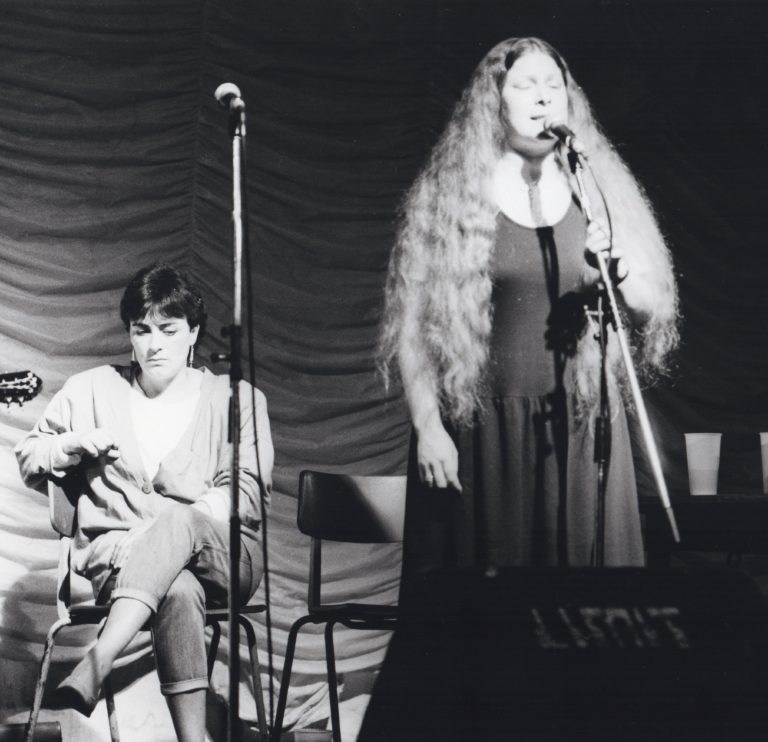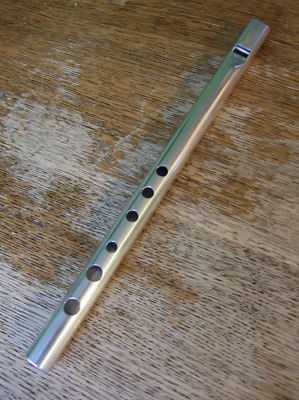How To Learn To Play The Tin Whistle
So, you want to learn the tin whistle. Great choice! It’s a fun instrument, with a lot of expressive possibilities packed in. Tin whistles are relatively inexpensive, and easy to find for sale online or in a shop. No wonder the whistle is one of the first instruments a lot of Irish musicians pick up. Plus, since it’s so small, you can always have one on you, as demonstrated in this clip:

When it comes to learning the tin whistle, there a lot of ways to go about it. The best way is to find a teacher. One-on-one instruction is the best way to learn any instrument for a number of reasons. Mistakes will be corrected before they become bad habits, you’ll be able to ask questions about exactly what’s confusing you, and your lessons can be tailored to your strengths and weaknesses.
That being said, not everyone has a teacher in their local area. If that’s the case for you, don’t fret: there are lots of resources available! Whatever your learning style, you can find what you need to guide you through the beginning steps. You may not move as quickly as with a private teacher, but you’ll get there.
One important thing to note is that the vast majority of tin whistle learning materials are geared towards Irish music. This makes sense, since Irish music is the most popular music to play on the tin whistle. Even if you’re interested in something other than Irish music, it may well be worth learning a bit anyway. It’s well-suited to the whistle, and will help you get the basics. Plus, you’ll have a much wider range of resources. Later on, you can apply what you’ve learned to whatever else you’d like to play.
Choosing The Right Resource For You
No one way to learn is going to fit every player. And really, no one way to learn is enough for any player. In order to get the most out of your tin whistle, you’ll want to learn from many sources. Traditionally, whistle players learned from the people around them, soaking up the tunes and techniques of older, more experienced players. Nowadays, there are a remarkable number of resources available online and in print to supplement or even supplant that direct teaching.
In general, learning materials can be broken down into two categories: books and video-based courses. Both have their pros and cons. Books are easily accessible, and great for people who learn visually. In general, they’re better for people with some amount of musical knowledge, as they usually include a lot of musical notation. If you like the “why” behind the “how,” many books delve into the history of the instrument and Irish music. They also frequently have analysis of great players and recordings.

Video courses are much more experiential. They’re geared towards people who learn by ear, although you can always find a transcription of the tune on The Session or elsewhere. Most Irish musicians would agree that learning by ear is an essential skill to have. It’s worth picking up as you learn the tin whistle. However, video courses can be “one pace fits all.” Unless you repeatedly stop and replay everything, you might find them too quick-moving. Or, you may end up wanting to fast-forward a lot.
Whatever your learning style, one thing to keep in mind is that you’re learning music. It seems like a silly thing to say, but rote memorization and practice is not the same as music making. You need to get a feel for how the instrument and the music sounds. And for that, you need to spend a lot of time listening to tin whistle music.
Listening

I cannot overstate how important listening is to learning. If you do nothing else, listen to great tin whistle players. If you buy nothing else, buy a few albums from great tin whistle players. Hearing how they play, where they breathe, what ornaments they use, etc. is by far the best way to learn.
For starters, check out our list of 10 Tin Whistle Players You Should Listen To. This list is by no means exhaustive, but you can learn something from each and every player. Many are competent players one multiple instruments, which brings up another important point. If your goal is to learn Irish music, you shouldn’t just listen to tin whistle players. Irish flute players and uilleann pipers often double on the tin whistle, and the instruments share many common techniques. Branching out by listening to fiddlers and concertina players will give you a different perspective.
Overall, the key is variety. Don’t just listen to one player, one style, or one instrument. Take it all in, and you’ll soon get an idea for how you’d like to style your playing. Plus, you’ll start to get your favorite tunes stuck in your head, which is hugely important to the learning process.
Recordings
While tin whistles show up on a bunch of Irish music albums, they’re usually played with other instruments. It can hard to hear exactly what the whistle player is doing when they’re part of a big group. There are also a lot of albums where a piper or flute player picks up the tin whistle for a track or two. Again, by all means listen to these and other albums, since they’ll give you a great sense of how Irish music sounds. But you may not learn as much as you’d like about the tin whistle from them.
Luckily, there are also quite a few albums that prominently feature solo tin whistle playing. Here are 10, in no particular order. They’re widely available, both in physical and digital form, and can be found on many of the major streaming services as well. These albums are a great jumping-off point, and run the gamut from old-school traditional to fairly modern.
- Feadóga Stáin, Mary Bergin
- Feadóga Stáin 2, Mary Bergin
- Song of the Irish Whistle, Joanie Madden
- Ireland’s Whistling Ambassador, Micho Russell
- Rarities & Old Favorites, Micho Russell
- The Ravishing Genuis of Bones, Brian Finnegan
- Tin Whistles, Paddy Moloney and Seán Potts
- Minstrel’s Fancy, Seán Ryan
- Ceol Ar an bhFeadóg Stáin, Donncha Ó Briain
- The Quiet House, Noreen O’Sullivan
Visiting an Irish Session
While there are plenty of Irish music concerts and festivals out there, one of the most common ways to hear Irish music is at a session. Sessions are informal gatherings of musicians, usually in a pub or similar place, where everyone plays along with each other. Nowadays, you can find an Irish music session just about anywhere in the world. And when you go, you’re almost certain to run into at least one other tin whistle player.
When you go, keep a few etiquette rules in mind. Everyone is expected to know the tunes if they want to play along. There are many tunes out there that are nearly universal, but many more that may only be popular in a particular locale. If you don’t know anything being played, just sit back and enjoy the music. Ditto for if you feel that the session is going too fast for your playing. The players at a session are usually more than happy to have someone sitting and listening intently, and will always prefer that to someone trying and failing to keep up.
Whether you’re playing or listening, be friendly to your fellow musicians. You can learn a lot just by sitting and listening, and chatting up your neighbor during lulls in the playing. Fellow players are usually more than happy to talk shop or show off their whistle collection. That being said, use common sense and don’t talk their ears off. At the end of the day, everyone’s there to have a good time and to share in the music. Being curious is great, but being courteous is a must.
Slow It Down
When an expert player is playing at full speed, things can get confusing. When you’re starting out, you should try slowing everything down to get all the nuances of the music. Now, this is a little trickier than it sounds, because as anyone who has played a vinyl record can attest, simply playing a recording slower also lowers the pitch. You want to slow the recording down while keeping everything at the same pitch, so that you can play along.

On a YouTube video, this is really easy. Simply click on the gear icon in the lower right, and click on “Speed.” You can cut playback to half speed, 3/4 speed, or even speed it up if you want to get crazy.
For other recordings, the Amazing Slow Downer is quite popular. It’s a nifty bit of software that will slow things down without altering the pitch, and is fairly easy to use. If you want to delve a little more into audio editing, Audacity will do the same and much more besides. It has a bit more of a learning curve, but it’s quite versatile for recording/editing. It’s also free, which is always a plus.
Here’s a basic tutorial on slowing audio down using Audacity:

Online Tin Whistle Lessons
Recently, a few different video-based tin whistle courses have popped up online. They are usually based around teaching tunes, breaking them down phrase by phrase at a learner’s pace. Certain tunes are picked to teach common techniques, and the lessons run from the very basic beginning notes to some very advances tutorials.
These can be a boon to a learner without access to a local teacher. Since you’re getting direct instruction from a great tin whistle, you’ll be able to hear and see exactly what the “pros” are doing. You won’t get the same kind of feedback you get from a live teacher, but you’ll still have much more interaction than with a book or audio recording.
Unlike a book, however, these courses are usually only available via subscription. $15-20 seems to be the going monthly rate, but there are sometimes options to buy in advance and save. It’s up to you how long you want to stay subscribed, and they do promise periodic updates. Even so, $20/month is certainly still much less expensive than weekly or even monthly private lessons.
Online Academy of Irish Music

The Online Academy of Irish Music (OAIM) is based in Doolin, Co. Clare, one of the epicentres of Irish music. Its lessons are taught by some very accomplished musicians, and are vquite comprehensive. For tin whistle, there are 5 courses, each with 13-17 lessons/tunes. They also have over 50 play-along videos of a virtual session, so you can get a feel for playing with others.
One great aspect of the Online Academy of Irish Music is that one subscription gets you access to every instrument’s lessons. This is great for anyone who wants to learn multiple instruments. It’s also a great way to see for yourself how other instruments play the same tunes you’re learning on the tin whistle. As I mentioned before, listening to other instruments is crucial for getting a feel for the overall sound of Irish music. Plus, it may add some variety into your playing style if you learn a fiddle or accordion version of a tune.
Blayne Chastain’s I-Teach Tin Whistle Lessons
Blayne Chastain is an accomplished whistle and flute player who runs the online Irish Flute Store. He also offers video-based courses for a monthly subscription fee. The lessons go through tunes phrase by phrase, adding ornamentation and variations in to teach various techniques. You can learn by ear or work from PDF sheet music, and you can also download sound files to listen to and play along with when you’re not around a computer. One neat feature is the accompaniment track provided for each tune, so you have something to “play along” with even when you’re by yourself.
One important pricing note: lessons are around $15/month, but there are discounts for paying quarterly or annually. And, since Chastain runs the Irish Flute Store, he offers a free Dixon whistle with the longer subscription lengths. If you’re just starting and are looking for a new whistle anyway, this can be a pretty great deal.
Tin Whistle Lesson Books
There are dozens of books out there for people learning the tin whistle. Many are tune books, mostly full of sheet music, but some also offer instruction. Some of them are written by very accomplished, well-known players, with years of experience teaching beginners and advanced players alike. These books can be extremely helpful, but it’s important to know a few things before buying one.
First of all, there is no standard nomenclature for tin whistle technique. Get a few of these books, and you’ll see the same things being described in many different ways. Sometimes, it almost seems like two books are completely contradictory, even when talking about the same technique or sound! What works for one person might not work for another, so your mileage may vary with any particular book.
Second is the old saying the “writing about music is like dancing about architecture.” If all you ever do is read words and notes on a page, you won’t get anywhere useful.
Mary Bergin’s Irish Tin Whistle Tutorial
Mary Bergin is widely acknowledged as one of the greatest tin whistle players in Irish music. She’s a major influence on countless other whistle players, and her recordings are must-haves for anyone interested in Irish music or the tin whistle. Her tutorial books are broken up into three volumes, starting from the basics and working all the way up to very advanced techniques and concepts. Crucially, they come with CDs demonstrating those techniques.
The books are primarily available through her website, and not listed on Amazon or any other major sellers. Anyone in Ireland might have luck in local music shops, but it’s not otherwise distributed widely. The only other option is to go to a music festival that Bergin is playing at; she usually has a few copies. Luckily, she’s a pretty active teacher and performer, so finding her might be easier than you think!
The Clarke Tin Whistle by Bill Ochs
Bill Ochs was a giant in the tin whistle world as a player, teacher, and researcher. His book has been in print since 1988 and is one of the most popular suggestions when the question “where should I begin?” comes up. One of its great qualities is that it assumes nothing, and makes sure to walk the learner through every step of the way, including learning to read music. If you already know something, you can skip it, but if you don’t, it’s invaluable to have the clear explanation that other books sometimes lack!
The Clarke Tin Whistle also one of the few books to go outside the Irish tradition for many of its tunes, and is a great book to start with if you’re more interested in the instrument than Irish music. The “Deluxe Edition” includes a CD. I’m not sure if you can still buy the “non-Deluxe Edition,” but the CD is important and shouldn’t be skipped.
The Essential Guide To The Irish Flute And Tin Whistle by Grey Larsen
This is a pretty hefty book at 480 pages, and offers a fairly thorough run-through of techniques, tunes, and other aspects of playing. Since a lot of tin whistle players end up trying to learn the flute at one point or another, it’s a great two-for-one. But since a lot of the techniques are transferable between the two, there isn’t a lot of “wasted” space if you’re just looking to learn one or the other.
Larsen is a well-known player in his own right, but he also breaks down the playing of various influence flute and whistle players to help teach different styles. Like a lot of these books, the Essential Guide comes with companion CDs.
The Essential Tin Whistle Toolbox by Grey Larsen
This is a more focused book than the one above, sticking only with the tin whistle. There’s a good bit of overlap between the two, however. It runs over most of the same techniques, ornaments, etc. that the other book covers. However, the focus is mainly on beginner and intermediate technique, and it’s missing some of the more advanced concepts in Larsen’s other book. It also comes with audio samples, although they’re in the form of an online download rather than CDs.
Overall, the Flute/Whistle book has more content, and is probably more valuable to someone interested in Irish music in general. If you already have some experience on the whistle, the other book might last you longer. That being said, for a beginner strictly focused on learning to play the whistle, this book is a good option.
Geraldine Cotter’s Traditional Irish Tin Whistle Tutor
Geraldine Cotter is a well-known musician and teacher from Co. Clare, and her tin whistle tutor has been a classic since it was first published in 1983. She has updated it a few times since, but the basics that made it one of the most popular books on tin whistle have remained the same. There’s a big collection of tunes in the back, and an accompanying CD with all of them played through to give the learner a sense of what they sound like.
The Complete Irish Tin Whistle Tutor by L.E. McCullough
McCullough is another longtime tin whistle player and teacher, and his book is a fairly popular introduction to the whistle. At 74 pages, it’s on the shorter side, but covers all of the most common ornaments and techniques. It comes with a CD of McCulough working through the tunes and exercises printed in the book. While it’s geared towards beginners, I have read some complaints that it doesn’t adequately explain how to read staff notation. Many players will have experience with other instruments, but if you don’t, you may want to brush up on staff notation before diving into this book.
A Complete Guide To Learning The Irish Tin Whistle by Clare McKenna
This is another great book for the complete beginner, since it walks through very basic musical concepts early on. McKenna explains everything in a clear and concise manner. Like Ochs, she doesn’t assume anything about the learner. It comes with a CD playing through various tunes and exercises.
A Complete Guide To Playing Irish Music On The Tin Whistle by Stephen Ducke
Yet another book that takes things slow and easy, but does a very thorough job. At 300 pages, t’s a good bit thicker than most of the other books on this list. And rather than including CDs, Ducke has over 400 files available for download with the purchase of this book. The first part of the book discusses playing the whistle in very broad terms, with some simple children’s songs to demonstrate. The rest of the book dives specifically into Irish music.
Other Online Resources
The Session

The Session is home to a massive database tunes, all posted in both ABC and staff notation. Often, a tune will have many different settings and variations written out, giving you a wide range of options to learn from. There’s also an active discussion board, a database of recordings, events listings, and a session finder. If you have questions about any aspect of Irish music, search the site and you’ll probably find an answer. If not, post a question and some of the knowledgeable people who post will help you out.

Chiff and Fipple started as a website dedicated to the tin whistle. While it has since expanded to include other instruments, the tin whistle forum is still quite active, and full of knowledgeable posters. As on The Session, a search through the archives will probably turn up an answer to any question you’ve asked. It’s a great place for finding reviews of various makes and models of whistle. And if you don’t find the answer you’re looking for, posting a question yourself usually turns up something from the other users.
Ryan Duns’ YouTube Channel

Duns is a Jesuit priest who also happens to love the tin whistle. He has a ton of videos, including a lot of tutorials on various bits of technique. If you’re looking to learn a commonly played tune, he probably has a version of it recorded, and may even teach it phrase by phrase.
